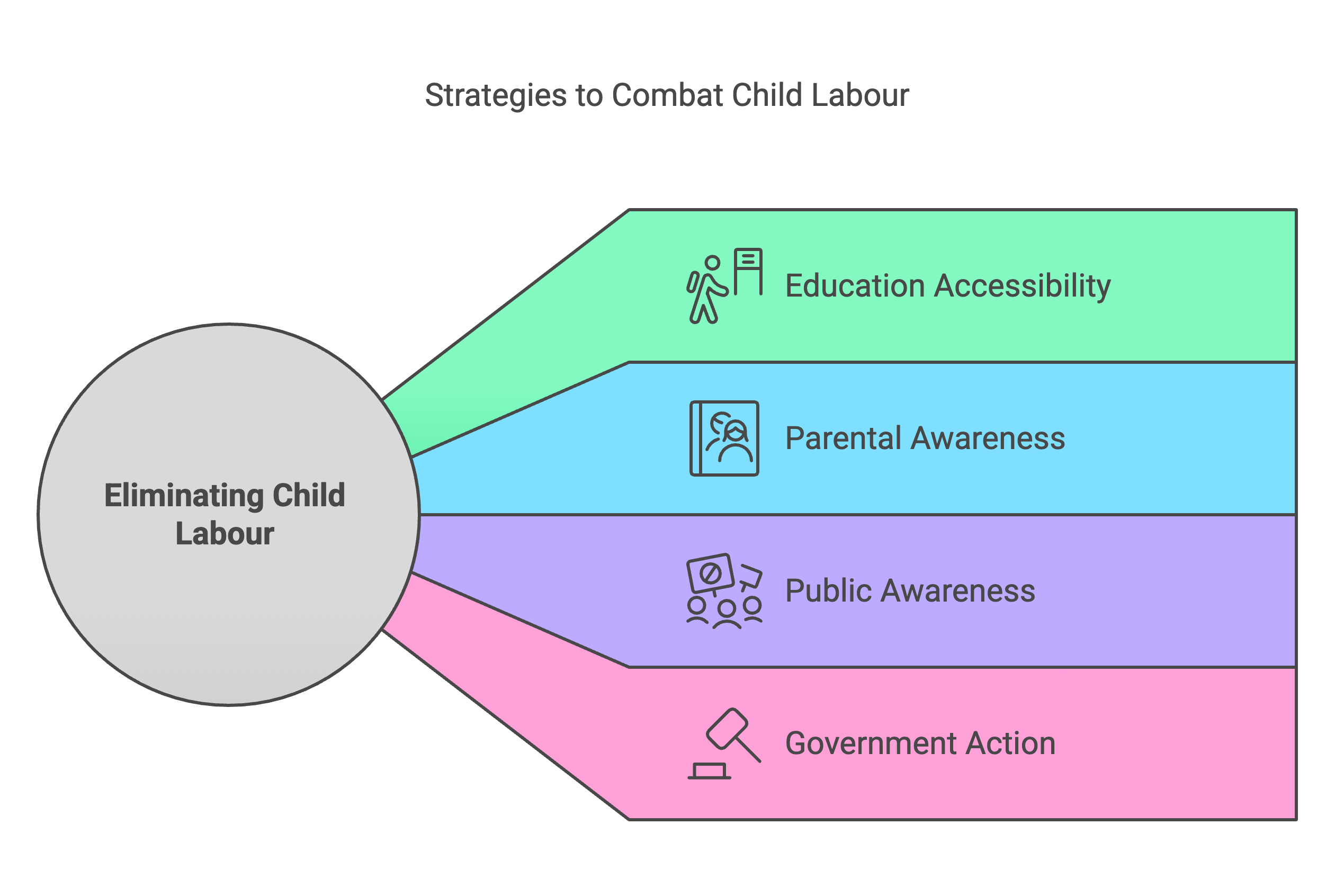NCERT Solutions for Class 12 English Flamingo - Lost Spring
| Table of contents |

|
| Think As you Read |

|
| Understanding the Text |

|
| Talking about the Text |

|
| Thinking about Language |

|
Think As you Read
Q1: What is Saheb looking for in the garbage dumps? Where is he and where has he come from?
Ans: Saheb is looking for coins and rupee note in the garbage dumps. Sometimes he finds a rupee, even a ten rupee note or a silve coin. There is always hope of finding more. He is in Seemapuri. Saheb has come from Bangladesh. He came with his mother in 1971. His house was set amidst the green fields of Dhaka. Storms swept away their fields and homes. So they left it.
Q2: What explanations does the author offer for the children not wearing footwear?
Ans: The author comes across many shoeless rag-picker children in her neighbourhood. According to her, one explanation of this habit of remaining barefoot is that it is a tradition among the poor children of this country. However, the author quickly mentions that calling it a tradition could be just a means of justification of the utter destitution.
 Q3: Is Saheb happy working at the tea-stall? Explain.
Q3: Is Saheb happy working at the tea-stall? Explain.
Ans: No, Saheb is not happy working at the tea-stall. He is paid 800 rupees and all his meals but he has lost his freedom. His face has lost the carefree look. The steel canister seems heavier than his plastic bag. He is no longer his own master. He is as a servant at the tea-stall.
Q4: What makes the city of Firozabad famous?
Ans: Firozabad is famous for its glass bangles. The place is the centre of India’s glass-blowing industry.
Q5: Mention the hazards of working in the glass bangles industry.
Ans: The bangle makers face many problems in the glass industry. They have to work in the dingy cells without air and light , in the high temperature of the furnace .The dust from polishing the bangles is injurious to eyes. They often lose their eyesight before they become adults. Their eyes are more adjusted to the dark than to the light outside.
Q6: How is Mukesh’s attitude to his situation different from that of his family?
Ans: Mukesh belongs to a poor family of bangle-makers. But his attitude is very different from his family. He wants to break the family tradition of bangle making. He is daring and determined. He has hopes and dreams. He wants to be a motor mechanic.
Understanding the Text
Q1: What could be some of the reasons for the migration of people from villages to cities?
Ans: There are many factors that cause migration of people from villages to cities. Some villagers voluntarily move to the cities in search for jobs and better civic and health facilities, etc. Others are forced to migrate when natural disasters like flood, storm, drought, famine, etc. destroy their houses and properties. History has records of large scale migrations caused by wars. Also, many villagers who are better off than others manage to send their children to study in the cities.
In the lesson ‘Lost Spring’, Saheb and his family migrates to Seemapuri from Dhaka after their houses were destroyed in the storms.
 Q2: Would you agree that promises made to poor children are rarely kept? Why do you think this happens in the incidents narrated in the text?
Q2: Would you agree that promises made to poor children are rarely kept? Why do you think this happens in the incidents narrated in the text?
Ans: Yes, the promises made to poor children are rarely kept. Often, they are not taken seriously or have been made on the pretext of retaining a child’s fancy for something. This keeps the child hoping for a better possibility till he/she realises the truth. It is difficult for people to shatter the children’s dreams; while it is also painful to see these children thrive of false hopes given to them.
Once, while interacting with Saheb, the narrator ends up encouraging him to study and jokingly talks about opening a school herself. At that time she fails to realise that unknowingly she has sown a seed of hope in Saheb’s heart. She becomes conscious of her mistake when, after a few days, Saheb approaches her, enquiring about her school. Her hollow promise leaves her embarrassed.
Q3: What forces conspire to keep the workers in the bangle industry of Firozabad in poverty?
Ans: The unfavourable social and legal systems, the deceptive middlemen, and their own sad destinies keep the workers in the bangle industry of Firozabad in perpetual poverty.
Talking about the Text
Q1: How, in your opinion, can Mukesh realise his dream?
Ans: Mukesh was different from the others of his community. By daring to dream, he has already taken the first step towards a big change. He wants to become a motor mechanic and drive a car. He can realise this dream with determination and hard work. There might be many obstacles on his way but a strong willpower will help him move towards the way to success. The fact that he is willing to walk a long distance in order to learn the vocation, underlines his firm resolve. The only thing left for him to do is to make that first journey to that garage and request the owner to take him in and guide and direct him on his journey as a mechanic.
Q2: Mention the hazards of working in the glass bangles industry.
Ans: The impoverished workers in the glass bangles industry toil in potentially hazardous working conditions while welding. The furnaces they work in have extremely high temperature and lack proper ventilation. Persistently working in low light conditions, without any protective eye gear, leaves them blind. Even burns and cuts are quite common. The workers are quite prone to ailments such as lung cancer.
Q3: Why should child labour be eliminated and how?
Ans: Child labour should be eliminated because it takes away from the child his childhood and the prospect of elementary education. Moreover, since the child labourers are cheap, and consequently engaged in hazardous and dangerous employment, they are often vulnerable to mental and physical illness. In order to curb this problem, it is important to make education easily accessible. Apart from that, the parents must be made aware of the consequences of working in harmful environments. It is also important to make the public aware of the fact that child labour is a criminal offence and is punishable under law. The government must ensure stricter child labour laws and that the offenders are punished.

Thinking about Language
Carefully read the following phrases and sentences taken from the text. Can you identify the literary device in each example?
1. Saheb-e-Alam which means the lord of the universe is directly in contrast to what Saheb is in reality.
2. Drowned in an air of desolation.
3. Seemapuri, a place on the periphery of Delhi yet miles away from it, metaphorically.
4. For the children it is wrapped in wonder; for the elders it is a means of survival.
5. As her hands move mechanically like the tongs of a machine, I wonder if she knows the sanctity of the bangles she helps make.
6. She still has bangles on her wrist, but not light in her eyes.
7. Few airplanes fly over Firozabad.
8. Web of poverty.
9. Scrounging for gold.
10. And survival in Seemapuri means rag-picking. Through the years, it has acquired the proportions of a fine art.
11. The steel canister seems heavier than the plastic bag he would carry so lightly over his shoulders.
Ans:
1. Irony
2. Metaphor
3. Antithesis
4. Antithesis
5. Simile
6. Pun
7. Pun
8. Metaphor
9. Metaphor
10. Hyberbole
11. Paradox
|
29 videos|317 docs|82 tests
|
FAQs on NCERT Solutions for Class 12 English Flamingo - Lost Spring
| 1. What is the theme of the article "Lost Spring"? |  |
| 2. How does the author portray the struggles of the children in the article "Lost Spring"? |  |
| 3. What is the significance of the title "Lost Spring" in the context of the article? |  |
| 4. How does the article "Lost Spring" shed light on the issue of child labor in India? |  |
| 5. What message does the author convey through the article "Lost Spring"? |  |





















